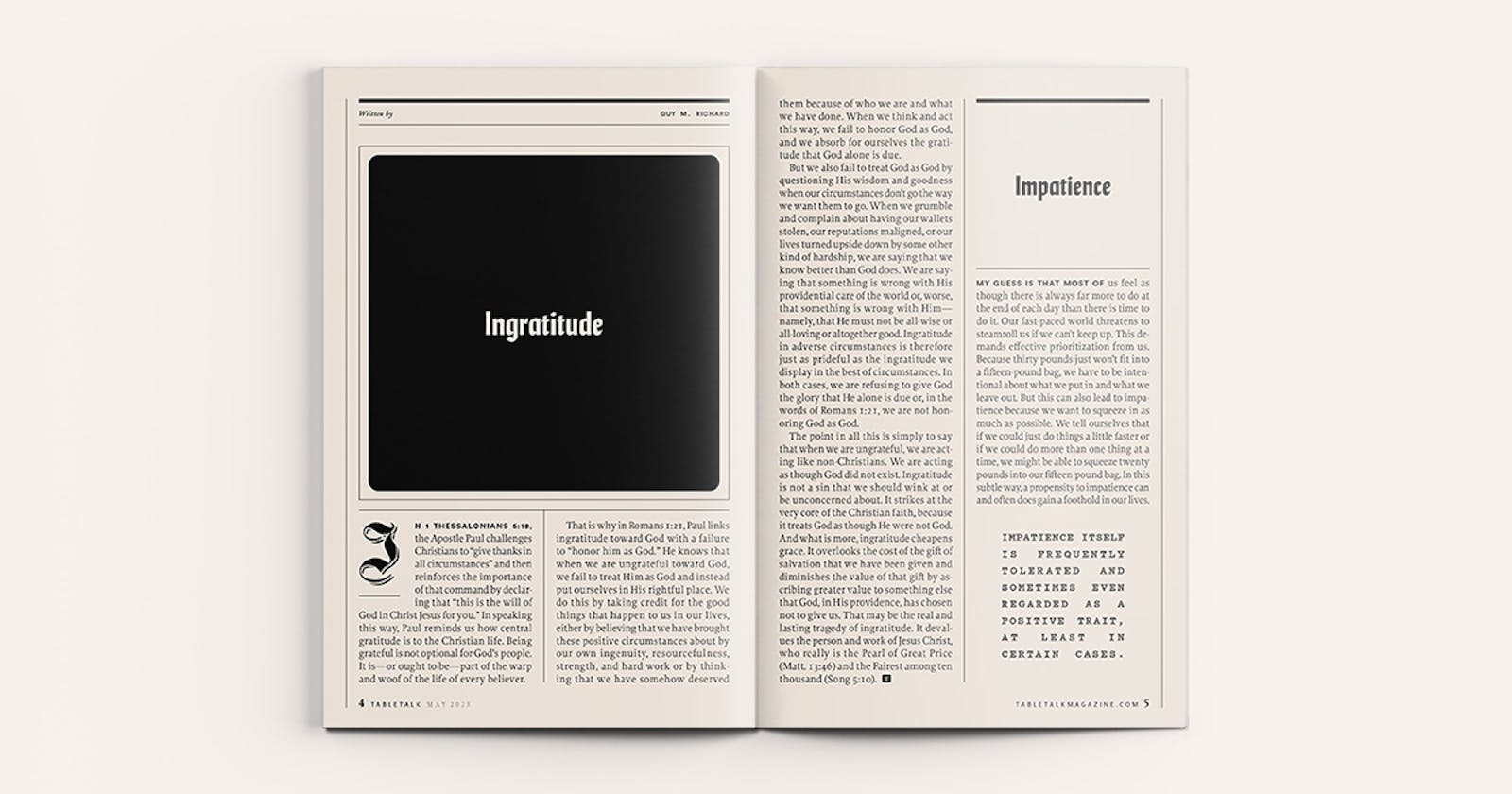
Request your free, three-month trial to Tabletalk magazine. You’ll receive the print issue monthly and gain immediate digital access to decades of archives. This trial is risk-free. No credit card required.
Try Tabletalk NowAlready receive Tabletalk magazine every month?
Verify your email address to gain unlimited access.
My guess is that most of us feel as though there is always far more to do at the end of each day than there is time to do it. Our fast-paced world threatens to steamroll us if we can’t keep up. This demands effective prioritization from us. Because thirty pounds just won’t fit into a fifteen-pound bag, we have to be intentional about what we put in and what we leave out. But this can also lead to impatience because we want to squeeze in as much as possible. We tell ourselves that if we could just do things a little faster or if we could do more than one thing at a time, we might be able to squeeze twenty pounds into our fifteen-pound bag. In this subtle way, a propensity to impatience can and often does gain a foothold in our lives.
This propensity to impatience is regularly ignored. Impatience itself is frequently tolerated and sometimes even regarded as a positive trait, at least in certain cases. The businessperson who is consistently impatient can often be regarded favorably as one who “gets things done.” Why, then, should we be so sensitive about the sin of impatience when it can have such positive consequences? If it helps us survive in our fast-paced world, to accomplish more every day than we would otherwise, and to climb the corporate ladder in our chosen career field, then why get so worked up about it?

We need to remember, first, that impatience is a manifestation of pride. We are impatient because we want to “be like God” (Gen. 3:5), who alone gets everything done all the time. God speaks, and it always happens. Nothing frustrates His will; nothing limits His accomplishments. He always accomplishes everything that He wants to accomplish, and He always does so at the precise moment that He wants it to be done. We are impatient because we are not like that, and we so desperately want to be. And since pride really is “the great sin,” as C.S. Lewis has said, we ought not to tolerate it or to turn a blind eye to it in any of its manifestations.
The second thing I would say is that patience is a fruit of the Spirit (Gal. 5:22). Every Christian, by definition, is indwelt by the Holy Spirit (Rom. 8:9–11). And if the fruit that the Spirit produces in us includes patience, then every Christian should necessarily exhibit patience in his or her life in increasing measure. Patience is not optional for us as Christians because possessing the Holy Spirit isn’t optional. To turn a blind eye to impatience in our lives is therefore to deny that Christians must be indwelt by the Holy Spirit or to suggest that the Holy Spirit won’t produce patience in our lives—both of which are completely untrue.
